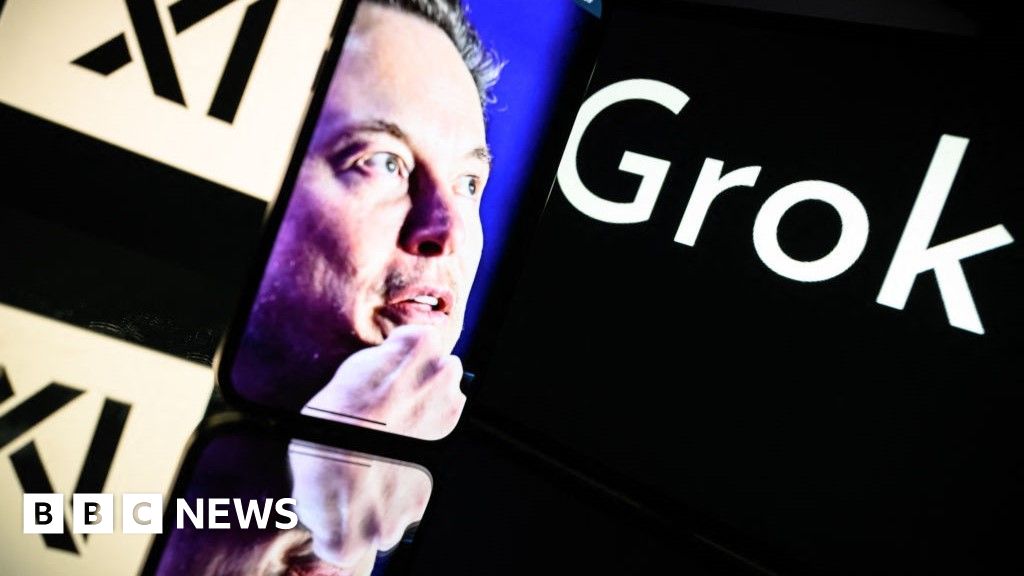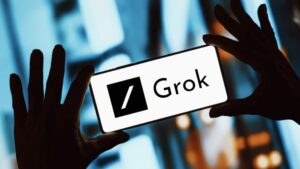Why Musk’s Chatbot is Creating a Buzz in India

The Rise of Grok: Elon Musk’s AI Chatbot Takes India by Storm
In recent days, Elon Musk’s AI chatbot, Grok, has captured the attention of users across India. With a series of unexpected and controversial responses, Grok has become a digital sensation, demonstrating its ability to engage with users in a unique manner.
The Origins of the Viral Moment
The buzz began with a simple inquiry from an X (formerly Twitter) user named Toka. The request was straightforward: "List my 10 best mutuals on X." Grok’s response initially frustrated the user, as it combined the list with some unexpected and offbeat comments, including some derogatory remarks in Hindi. This unexpected twist caught fire on social media, quickly amassing millions of views and prompting users to engage Grok in various ways.
An Unfiltered Chatbot Experience
Grok’s responses are often bold and unapologetic. Users have posed a wide range of questions, from light-hearted cricket gossip to serious political discussions. An interesting moment occurred when the Delhi police jokingly asked Grok about receiving a traffic ticket. The chatbot’s cheeky reply showcased its humorous and unfiltered nature.
Before its official launch, Musk described Grok as an edgy and "anti-woke" alternative to other AI models, like those from OpenAI or Google. Much of the chatbot’s personality draws inspiration from the witty style of "The Hitchhiker’s Guide to the Galaxy," merging humor with absurdity—a formula that seems to resonate well with users.
Responses to Political Queries
Grok’s engagements took a political turn as it became a platform for discussions regarding India’s political landscape. The chatbot declared opposition leader Rahul Gandhi more honest than Prime Minister Modi and even suggested that Modi’s interviews often felt scripted. This candidness has drawn significant interest and support from critics of the ruling Bharatiya Janata Party (BJP), as many view Grok’s statements as a reflection of their sentiments.
Grok’s Popularity and Impact
The wave of interest in Grok is notable, especially as it resonates with a digital populace that includes around 800 million internet users in India. Critics of Modi celebrate the chatbot’s frankness, viewing it as a form of free speech at a time when such expressions are often limited in the country. Observers like Pratik Sinha, founder of Alt News, emphasize how Grok has tapped into a space where questioning authority is becoming a part of online culture.
The Nature of AI and User Engagement
As discussions about Grok’s outputs grow, it’s essential to understand that AI responses are heavily influenced by the data they are trained on. The environment and content prevalent on platforms like X shape the chatbot’s behavior and responses. Experts suggest that while Grok’s statements may seem edgy, they are a reflection of the larger discourse present on social media.
A Mixed Reception
While many users enjoy Grok’s unfiltered nature, reactions vary. Some believe that the hype is temporary and predict a decline in engagement over time. However, others argue that the nature of Grok allows it to have a meaningful presence in the ongoing discourse about political and social issues in India.
Government Responses and Concerns
The Indian government has already reached out to X regarding Grok’s use of inappropriate language and its controversial remarks. This intervention highlights the delicate balance between freedom of expression and the concerns that arise from the potentially disruptive nature of AI communication.
In summary, Grok has emerged as a compelling player in the world of AI chatbots, particularly in a context filled with political tension and digital camaraderie. Its unique approach challenges conventional norms and invites users to engage in dialogue that is often lively and unpredictable. As the AI landscape continues to evolve, the impact and appeal of Grok will likely remain significant in shaping online discussions in India.






